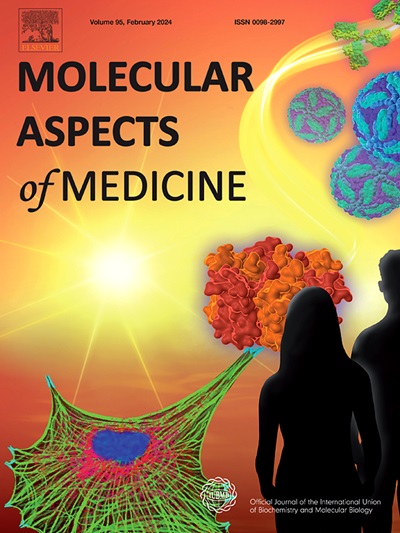Autophagy signaling mediated by non-coding RNAs: Impact on breast cancer progression and treatment
IF 10.3
2区 医学
Q1 BIOCHEMISTRY & MOLECULAR BIOLOGY
引用次数: 0
Abstract
Autophagy, a conserved cellular mechanism which detoxifies and degrades intracellular structures or biomolecules, has been identified as an important factor in the progression of human breast cancer and the development of treatment resistance. Non-coding RNAs (ncRNAs), a broad family of RNA, have the ability to influence various processes, including autophagy, due to their diverse downstream targets. ncRNAs play an important role in suppressing or activating autophagy by targeting autophagy-triggering components such as the ULK1 complex, Beclin1, and ATGs. Recent research has uncovered the intricate regulatory networks that govern autophagy dynamics, with ncRNAs emerging as key participants in this network. miRNAs, lncRNAs, and circRNAs are the three subfamilies of ncRNAs that have the most well-known interactions with autophagy, particularly macroautophagy. The high prevalence of breast cancer necessitates research into finding new biological processes that can help in early detection as well as enhance the effectiveness of treatment. The positive/negative link between autophagy and ncRNAs can be exploited as a supplementary therapy to improve sensitivity to treatment in breast cancer. This review investigates the regulatory roles of ncRNAs, particularly microRNAs (miRNAs), in modifying autophagy pathways in human breast cancer progression and treatment. However, future studies and clinical practice are needed to determine the most relevant microRNAs as biomarkers and also to better understand their role in breast cancer progression or treatment through modifying autophagy.
非编码rna介导的自噬信号:对乳腺癌进展和治疗的影响
自噬是一种保守的细胞机制,可以解毒和降解细胞内结构或生物分子,已被确定为人类乳腺癌进展和治疗耐药性发展的重要因素。非编码RNA (ncRNAs)是一个广泛的RNA家族,由于其不同的下游靶点,具有影响包括自噬在内的各种过程的能力。ncrna通过靶向自噬触发成分(如ULK1复合物、Beclin1和ATGs),在抑制或激活自噬中发挥重要作用。最近的研究揭示了控制自噬动力学的复杂调控网络,ncrna在该网络中成为关键参与者。mirna、lncrna和circrna是ncrna的三个亚家族,它们与自噬,特别是巨噬的相互作用最为人所知。乳腺癌的高流行率需要研究寻找新的生物过程,以帮助早期发现并提高治疗的有效性。自噬和ncrna之间的正/负联系可以作为一种补充疗法来提高乳腺癌治疗的敏感性。本文综述了ncRNAs,特别是microRNAs (miRNAs)在人类乳腺癌进展和治疗中自噬通路的调节作用。然而,未来的研究和临床实践需要确定最相关的microrna作为生物标志物,并更好地了解它们在乳腺癌进展或通过调节自噬治疗中的作用。
本文章由计算机程序翻译,如有差异,请以英文原文为准。
求助全文
约1分钟内获得全文
求助全文
来源期刊

Molecular Aspects of Medicine
医学-生化与分子生物学
CiteScore
18.20
自引率
0.00%
发文量
85
审稿时长
55 days
期刊介绍:
Molecular Aspects of Medicine is a review journal that serves as an official publication of the International Union of Biochemistry and Molecular Biology. It caters to physicians and biomedical scientists and aims to bridge the gap between these two fields. The journal encourages practicing clinical scientists to contribute by providing extended reviews on the molecular aspects of a specific medical field. These articles are written in a way that appeals to both doctors who may struggle with basic science and basic scientists who may have limited awareness of clinical practice issues. The journal covers a wide range of medical topics to showcase the molecular insights gained from basic science and highlight the challenging problems that medicine presents to the scientific community.
 求助内容:
求助内容: 应助结果提醒方式:
应助结果提醒方式:


